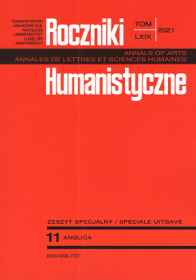The Politeness Systems of Address, Variations across Breton Dialects
The Politeness Systems of Address, Variations across Breton Dialects
Author(s): Melanie JouitteauSubject(s): Language and Literature Studies, Theoretical Linguistics, Applied Linguistics, Syntax, Stylistics
Published by: Towarzystwo Naukowe KUL & Katolicki Uniwersytet Lubelski Jana Pawła II
Keywords: dialectology; politeness systems; systems of address; Breton; T–V systems; pronoun
Summary/Abstract: This paper provides a synthesis of the various address systems in Breton dialects, and their evolution during the last century. It discusses the available data and provides the elicitation results from recent fieldwork. Three distinct address systems are described: hierarchical T–V (plurals are directed to superiors as a V form), gendered T–V (plurals are directed to women and girls as a V form), and non-dual (the once singular marker noted †2SG is missing in all of the paradigms, and the once plural form noted †V is the unique address pronoun and does not realise a formal marker). These systems are mapped to their respective territories of usage and an analysis is offered of the diachronic evolution and the cross-influences of these three systems over the last century. Most of the speakers in the central and southern area are restricted to a unique address pronoun, like Modern English you. This system is gaining ground towards the coasts, where a distinctive T address among male close friends or relatives gives rise to a T–V gendered system like in Welsh (Watkins). In the remaining North and South-East areas, a hierarchical T–V system organised centrally around age and social status is resisting the extension of the central area much more. Evidence is presented for independent subsystems inside both T–V systems: addresses to animals, to clergymen and to God. Occasional inversion of an expected marker serves emotionally charged interactions (aggressive T, hypocoristic V).
Journal: Roczniki Humanistyczne
- Issue Year: 69/2021
- Issue No: 11S
- Page Range: 107-127
- Page Count: 21
- Language: English

